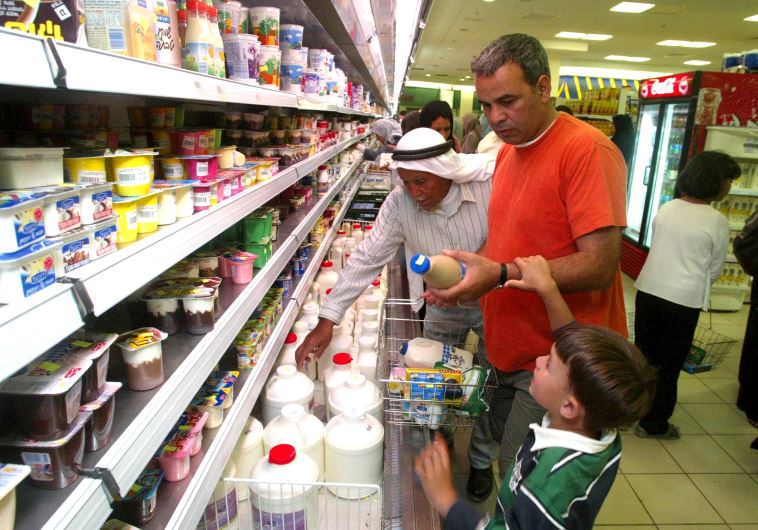Gaps between rich and poor begin with hunger
We must first and foremost concern ourselves with the most existential problem facing Israeli students – food.
 Shoppers buy Israeli food products at a Ramallah supermarket in 2003(photo credit: JAMAL ARURI / AFP)
Shoppers buy Israeli food products at a Ramallah supermarket in 2003(photo credit: JAMAL ARURI / AFP)